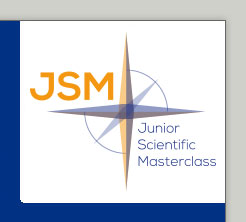Edit researchproject
In this email you'll find a link that you can use to edit the project on the website.
Only researchers that belong to the project can edit their project.
Please use the selectlist below to indicate which researcher you are. When you click the button 'Edit project', an email will be sent to the email of the selected researcher.
Project properties
| Title | Cardiovascular dysfunction, Cancer-related-fatigue, psychosocial distress and Quality of Life in breast cancer surivors |
|---|---|
| Keywords | breast cancer late effects of treatment |
| Researchers |
Prof. dr. J.A. Gietema Andrea Meuleman |
| Type of project | Stage Wetenschap / Researchproject |
| Nature of the research | Longitudinal clinical study |
| Fields of study | epidemiology oncology Patient Related Research |
| Background / introduction |
|---|
|
Breast cancer (BC) incidence is increasing, while mortality from BC is decreasing. Since the life expectancy of BC patients is improving, the evaluation of treatment-associated late effects in BC survivors are becoming increasingly important. One of the most important late-effects of anthracycline-containing chemotherapy and trastuzumab cardiotoxicity, especially congestive heart failure. Other examples of late effects are second malignancies, peripheral neuropathy, cancer-related fatigue and psychosocial distress. However, the etiology, prevalence and extent of late effects after anthracycline-containing chemotherapy, trastuzumab, hormonal therapy and contemporary radiotherapy techniques is still largely unknown. Currently a prospective clinical study about late effects in breast cancer survivors after treatment is performed at the department of Medical Oncology in the UMCG. Breast cancer survivors treated with and without anthracyclines are invited and divided in two follow-up duration groups: approx. 10 – 12 years and 15 – 17 years after diagnosis. Several tests measuring the presence of late effects (such as echocardiograms, vascular measurements, blood tests, urine tests, questionnaires) are being evaluated. The research project is in collaboration with the Netherlands Cancer Institute in Amsterdam. Approximately 250 participants were included in the UMCG and were seen about 5 years (5 – 12 years and 10 – 12 years after diagnosis) ago for a first study visit. All study participants are currently being invited and seen for a second study visit and similar measurements are performed as during the first study visit. |
| Research question / problem definition |
|---|
| What is the prevalence and what are predictors of late effects (e.g. cardiovascular dysfunction , cancer-related fatigue, psychosocial distress, reduced quality of life) in breast cancer survivors who have been treated with versus without anthracyclines? |
| Workplan |
|---|
|
1. Continue to see study participants and interpret the collected study parameters (e.g. lab values, echocardiogram, outcome questionnaires) 2. Form hypotheses for your research project on prevalence or possible predictors of late effects 3. Construct database with collected parameters needed to answer your hypothesis 4. Check hypothesis by performing analyses with your database and draw conclusions 5. Assemble a report. |


